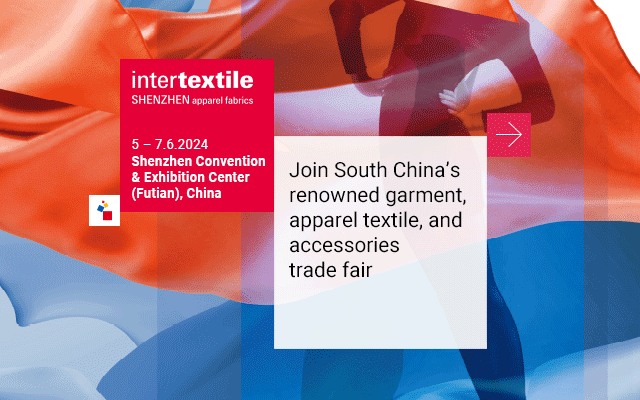Interviews
Your go-to source for news, anytime, anywhere! Insightful industry information from the textile, apparel & fashion world with our news app
Download Now
Your go-to source for news, anytime, anywhere! Insightful industry information from the textile, apparel & fashion world with our news app
Download Now
Your go-to source for news, anytime, anywhere! Insightful industry information from the textile, apparel & fashion world with our news app
Download Now
Your go-to source for news, anytime, anywhere! Insightful industry information from the textile, apparel & fashion world with our news app
Download Now
Pak garment sector 'grossly underperforming': study
05 Mar '19
2 min read

Although garment sector exports have increased over the years and it has been the best performing segment of the textile value chain, the sector is grossly underperforming relative to its potential, according to a study commissioned by the Pakistan Business Council (PBC) and conducted by the Consortium for Development Policy Research (CDPR).
Pakistan lags behind its competitors in the global share in export of garments. In 2017, Pakistan’s share in the exports of garments was a meagre 1.10 per cent compared to China’s 32.06 per cent, Bangladesh’s 7.66 per cent, Vietnam’s 5.94 per cent, and India’s 3.81 per cent, the study found.
The primary reason for this poor performance is the narrow export base, which is tilted towards low value-added unsophisticated items. The top six products exported by Pakistan account for 52.0 per cent of Pakistan’s exports, but only 20 per cent of total world garment exports, a PBC press release said citing the study findings.
World demand has been shifting to man-made fibre, which Pakistan has been unable to exploit. In addition, Pakistan’s garment exports are not well diversified in terms of destinations. Almost 88.0 per cent of garment exports are destined for the European Union and the United States.
The study was commissioned as part of PBC’s Make-in-Pakistan initiative, which aims at reversing the premature de-industrialisation of Pakistan, promoting jobs and exports of value-added products, and raising revenues.
Pakistan’s underperformance in exports can be attributed to a number of factors, divided into supply side, demand side and investment climate constraints.
Pakistan faces higher production costs and lower productivity compared to its peers. High production costs are in the form of import duty on cotton and man-made fibres, high energy tariffs and minimum wage. This has led to fierce competition with other low-wage competitors leading to small export orders for Pakistan, according to the study.
Pakistan faces unfavourable tariffs in garment exports in the international market like ASEAN, which restricts market access, and its currency in the recent past was overvalued with respect to the US dollar, making exports less competitive against China, India, Bangladesh and Vietnam.
Other impediments include poor access to credit, delay in the payment of government-announced tax refunds, low technological adoption, and time-consuming export procedures. (DS)
Pakistan lags behind its competitors in the global share in export of garments. In 2017, Pakistan’s share in the exports of garments was a meagre 1.10 per cent compared to China’s 32.06 per cent, Bangladesh’s 7.66 per cent, Vietnam’s 5.94 per cent, and India’s 3.81 per cent, the study found.
The primary reason for this poor performance is the narrow export base, which is tilted towards low value-added unsophisticated items. The top six products exported by Pakistan account for 52.0 per cent of Pakistan’s exports, but only 20 per cent of total world garment exports, a PBC press release said citing the study findings.
World demand has been shifting to man-made fibre, which Pakistan has been unable to exploit. In addition, Pakistan’s garment exports are not well diversified in terms of destinations. Almost 88.0 per cent of garment exports are destined for the European Union and the United States.
The study was commissioned as part of PBC’s Make-in-Pakistan initiative, which aims at reversing the premature de-industrialisation of Pakistan, promoting jobs and exports of value-added products, and raising revenues.
Pakistan’s underperformance in exports can be attributed to a number of factors, divided into supply side, demand side and investment climate constraints.
Pakistan faces higher production costs and lower productivity compared to its peers. High production costs are in the form of import duty on cotton and man-made fibres, high energy tariffs and minimum wage. This has led to fierce competition with other low-wage competitors leading to small export orders for Pakistan, according to the study.
Pakistan faces unfavourable tariffs in garment exports in the international market like ASEAN, which restricts market access, and its currency in the recent past was overvalued with respect to the US dollar, making exports less competitive against China, India, Bangladesh and Vietnam.
Other impediments include poor access to credit, delay in the payment of government-announced tax refunds, low technological adoption, and time-consuming export procedures. (DS)
Fibre2Fashion News Desk – India
Popular News
Leave your Comments
Editor’s Pick
































-Ltd..jpg?tr=w-120,h-60,c-at_max,cm-pad_resize,bg-ffffff)





.jpg?tr=w-120,h-60,c-at_max,cm-pad_resize,bg-ffffff)
.jpg?tr=w-120,h-60,c-at_max,cm-pad_resize,bg-ffffff)






